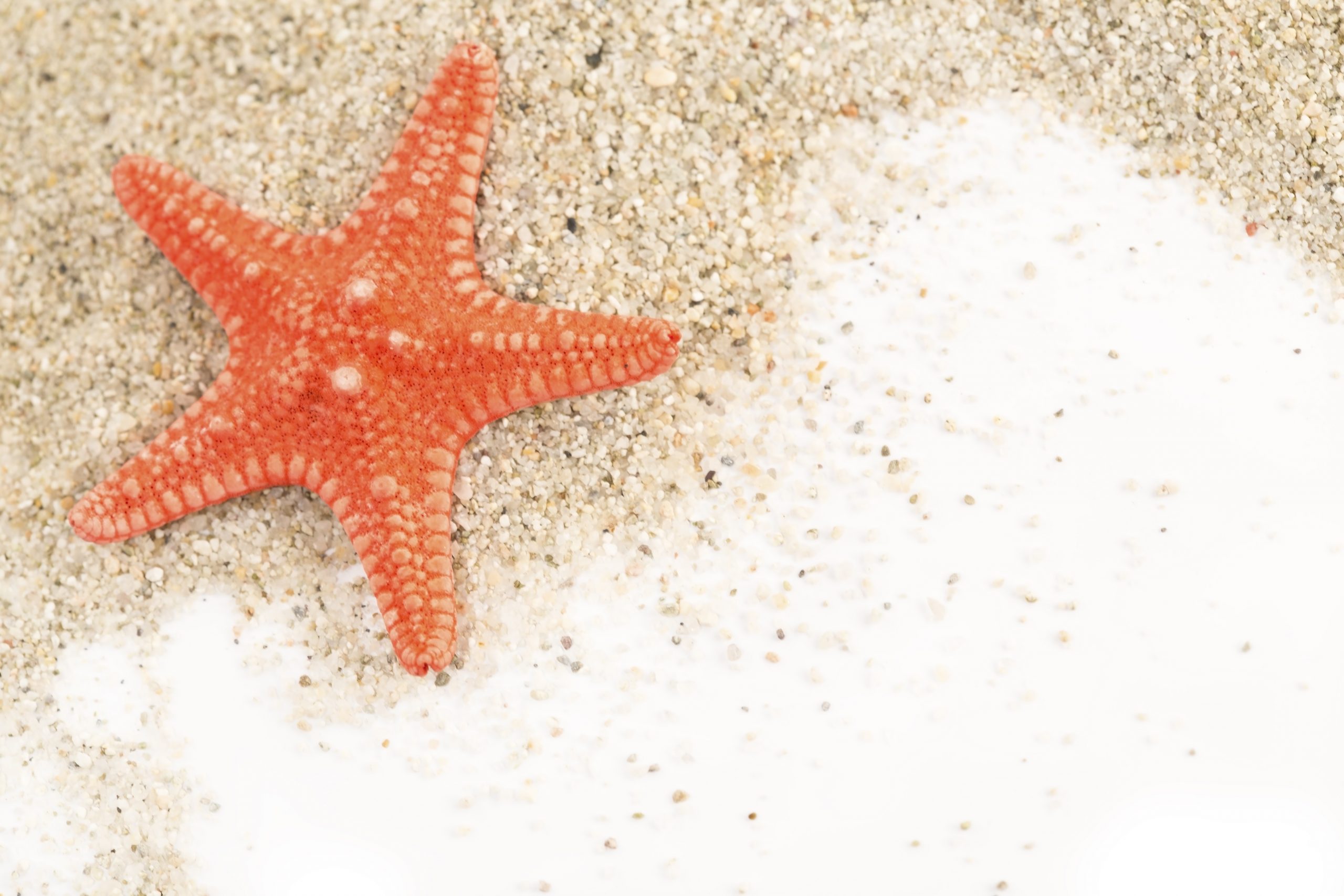The storm had been severe, off the scale, the worst in living memory, but now at last there was calm. The little tropical island had been battered for days on end by ferocious typhoon winds that had flattened hundreds of palm trees all along the coastline. They lay in tangled heaps like so many giant matchsticks. The effect on the local marine life had been equally devastating. Thousands upon thousands of baby starfish had been washed up on the shore, left stranded there when the crashing waves finally receded. Too many to count, they formed a reddish-brown carpet that stretched in all directions, as far as the eye could see. And they were dying. A boy of six or seven wandered down to the water’s edge, accompanied by his grandfather. When he stooped to pick up one of the fish, with the clear aim to return it to its home in the ocean, the old man laughed. “Have you seen how many starfish there are on the beach? If you worked at it every day of your life you could never make a difference to them. It’s hopeless.”
Coaching, or teaching, is about trying to making a difference, at least in the highly subjective arena of personal development. You can teach someone that the French for window is fenêtre. If maths is your subject you can teach someone how to solve an algebraic equation. After that it’s up to them. There’s no room for interpretation. There’s only one answer in each case. But teaching someone to realise that they create their own reality on a daily basis, that they are only ever one thought away from being perfectly happy? For some reason this wonderfully simple idea – should I say this simple truth? – can meet with a lot of resistance.
That’s where metaphors come in.
The little boy in my story represents each one of us, and the challenge he faces is simply being overwhelmed by circumstances beyond his control, something we all have to deal with in our lives from time to time. Some time ago I met a rich guy who was in a lot of trouble. An Orthodox Jew in his forties, he had squandered a fortune gambling and virtually destroyed himself with drink and drugs. A married man, he was a serial adulterer who had been at times violent towards his wife, and was very often out of control. I won’t name him for obvious reasons. Let’s call him Ben. He was being coached by one of my mentors who was trying to make him see that he was creating his problems through his unhealthy thinking, and that he could stop doing that any time he liked. Over the course of a few days, in two-hour sessions, he was taught how the Three Principles had been working through him all his life. Ben needed only to be aware of them, and of how he could use the gift of thought to steer his life into calmer waters. There were no techniques to be studied, no disciplines to follow. All he had to do was sit and listen. I was privileged to be a part of the discussion and I watched as my mentor, using metaphors and stories, gradually turned this frustrated, angry, violent man into a playful puppy, a gentle lamb. He was led away in tears, being lovingly consoled by his wife.
Milton Erickson, universally acknowledged as probably the greatest hypnotist who ever lived, once had a client who was desperate to be cured of his compulsive overeating. Milton discovered that the man’s hobby was gardening and that he had a particular fondness for growing tomatoes. With this in mind, Milton then put the man into a deep trance and then wove a little story about plants, specifically tomato plants, marveling at their capacity to take from the soil just exactly the nutrients they needed and no more. When the man was brought out of his hypnotic state he had no recollection of the story, but he was completely cured of his compulsion.
Some coaches teaching this new paradigm have been heard to say that a client has to be ready to hear the truth about the Three Principles. Many are too overwhelmed by their thinking to hear anything above the noise of their own internal dialogue. I don’t know if that’s true, but what is true is that metaphors bypass that thinking, coming at the truth from a different angle.
The young boy in the story was not troubled by his grandfather’s skeptical words, by the way. The situation might be ‘hopeless’ but he picked up the nearest starfish and gently placed it back in the sea. ‘Never mind’, he said, ‘at least I’ve made a difference to this one’.
Have you made a difference to anyone lately?

